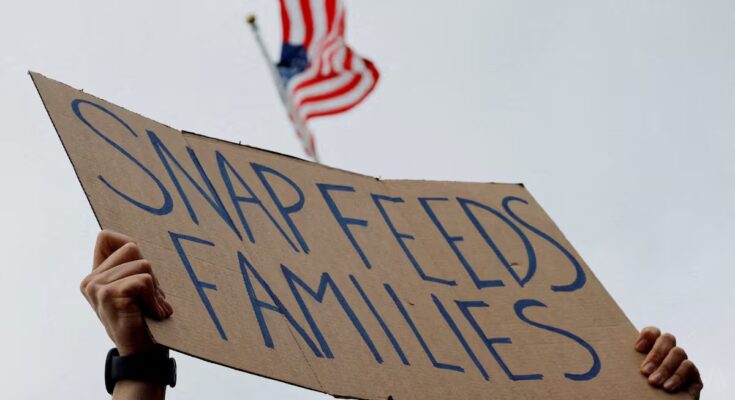The U.S. Supreme Court on Friday night allowed the Donald Trump administration to temporarily suspend payments to the food stamp program that 42 million Americans depend on to eat. Hours earlier, an appeals court refused to approve a GOP request to stay a Rhode Island judge’s order that he pay his Supplemental Nutrition Assistance Program (SNAP) benefits in full starting this Friday despite the government shutdown.
Judge Ketanji Brown Jackson said in his order that he intended to give the appeals court more time to review the case and the arguments of the Trump administration, which insists on suspending benefits for the duration of the government shutdown. His order will remain in effect until 48 hours after the appeals court’s decision, giving the administration time to appeal to the Supreme Court if the appeals court refuses to intervene.
The White House announced Monday that it will continue to partially fund the program, which helps one in eight Americans buy food, after announcing in late October that the program would run out of funding on Nov. 1 due to the government shutdown. That announcement gave rise to several lawsuits, and in response to one of them, Rhode Island District Court Judge John McConnell ruled last week that the government was obligated to continue SNAP payments despite the shutdown, and that it had to use money it had saved in emergency funds to do so.
The government complied with the order, but simply used money available in SNAP’s own emergency fund, which only had about $5 billion, to partially finance November benefits. The entire program nationwide costs around 8,000 million per month.
However, in a second opinion issued Thursday, Judge McConnell ordered the Trump administration to fully fund the program and use other federal government emergency funds to do so. McConnell set Friday afternoon as the deadline for the Administration to comply with his order. In response, the White House appealed to the U.S. Court of Appeals for the First Circuit to stay its ruling, which it has so far refused to do. The White House immediately took the case to the Supreme Court.
The government itself has admitted that the Department of Agriculture, which administers SNAP, has another reserve with millions of dollars on hand. However, he insisted that he will not use additional money, saying that it is up to Congress to appropriate funds for SNAP and that the rest of the funds in that reserve are needed to support other programs to combat childhood hunger. This is despite the fact that the Administration has already used the same budget item to avoid the interruption of another federal food assistance program for low-income pregnant women and children, known as WIC, during the government shutdown.
In his order Thursday, McConnell rejected the Trump administration’s decision to cover only a portion of SNAP benefits, which could have left some recipients with nothing this month. He also criticized President Trump for using the nutrition program as a political bargaining chip, citing the “numerous statements made in recent weeks by Trump administration officials that make clear that SNAP benefits are being withheld for political reasons.”
Friday’s Supreme Court decision, while temporary, could jeopardize the benefits of millions of Americans who depend on the program to feed themselves. Officials in more than a half-dozen states confirmed that some SNAP recipients had already received their full payments for the month of November on Friday. However, Jackson’s order could prevent other states from starting payments.
Since the start of the government shutdown, which is now the longest in U.S. history, both Democrats and Republicans have insisted that the government continue funding SNAP. However, the White House has continued to argue that it lacks the power and means to keep the program, which Trump has long targeted for budget cuts, afloat.
Meanwhile, the closure of the federal administration continues. Due to budget constraints, the Trump administration ordered a reduction in air traffic at 40 major US airports starting Friday, unleashing chaos at the country’s busiest terminals. As a result, more than 1,000 flights were cancelled.
Senate Democrats presented a proposal this Friday to end the shutdown crisis if their Republican counterparts agreed to postpone for a year the health care subsidy program provided by the Affordable Care Act (ACA), known as Obamacare. Republicans rejected the offer, while the president asked senators to remain in the capital over the weekend until both parties reach an agreement.



